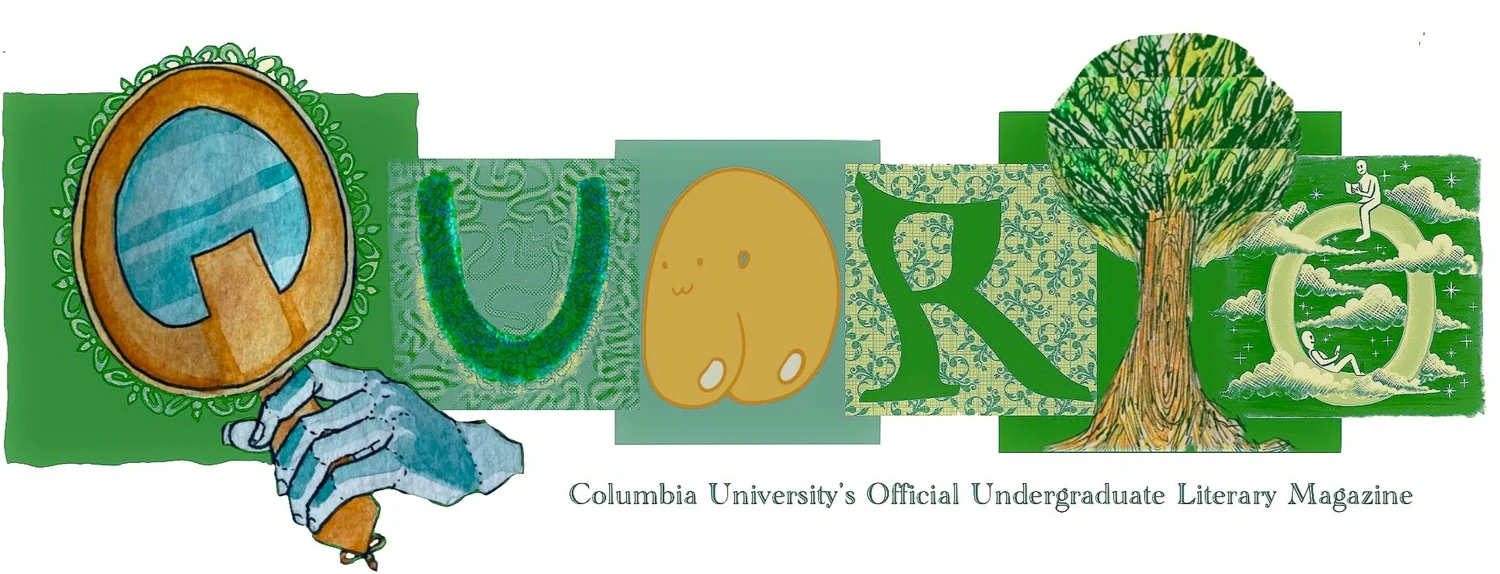I remember one time I tried to tell the story of the saxophone man.
It was for a presentation at my school, the most uppity school in the city.
My teacher, a well-meaning white lady, said:
This is an oratory exercise.
Public speaking is essential to your roles as future leaders.
Diction is the key to being understood and respected.
Annunciate , she’d say.
Red leather, yellow leather...
Pop those p’s.
No dangling prepositions.
I want to hear those g’s ringing at the end of those gerunds, Gerald.
“Ain’t” is not a proper contraction.
On the day of the presentation,
I woke up before dawn thinking about the saxophone man.
He lived somewhere among the boxes
near the corner by my apartment building.
I’d fallen asleep under his crooning saxophone’s hypnotic suggestion,
the melody still stirring around in my ear
as I ironed my uniform, straightened the coils of my hair,
and covered my face, arms, and legs
with cocoa butter.
I had originally planned to speak about something else:
the Civil War, Juneteenth, the Great Migration,
something more impressive.
But I felt convicted to talk about the saxophone man.
The music had revived something in me,
each blues note a line of prophecy.
So I took the bus to school,
which was a ways from my home.
I was surprised by how nervous I wasn’t.
And in a blink, it was my turn to speak.
My teacher, a well-meaning white lady, said:
Best of luck.
Do not forget the power of diction.
And I listened to her.
I lined up my crisp words like rigid toy soldiers,
only there was a real war inside me.
I still heard the saxophone’s melody stirring around
and if its music blurred into phonetic sound,
all the vowels would bleed together
and only be intelligible to the most patient and intimate ear...
And as I kept speaking,
my tongue obedient to my teacher’s rules,
I knew it wasn’t right.
It was too tight.
It lacked bite.
It was too...
When I finished my presentation,
the class politely applauded.
My teacher, a well-meaning white lady, said:
Excellent job, Taniya.
You are such an articulate young lady.
You speak as well as you read and write.
I politely thanked her,
feeling hollowed by her praise.
I had rendered it all wrong.
I wanted to cry, to pray, to ask for the Spirit’s groanings too deep for words.
I didn’t let tears fall down my cheeks until I was on the bus ride home.
I really oughta apologize to the saxophone man.
Cuz “ain’t” really do be the right word sometime.
Kyra Ann Dawkins is a senior at Columbia College studying Medicine, Literature, and Society. When she isn’t reading, writing, or talking a mile a minute, she’s trying to convince herself that she’ll be fluent in Spanish, French, Swahili, Esperanto(?) and Russian just by doing Duolingo. An exercise in futility indeed… She is also the author of The We and the They, a novel to be published by New Degree Press in July 2020. Find her on Facebook, Twitter, and Instagram.

